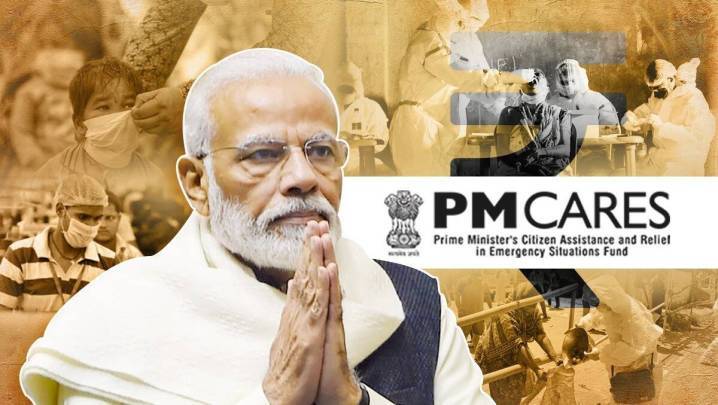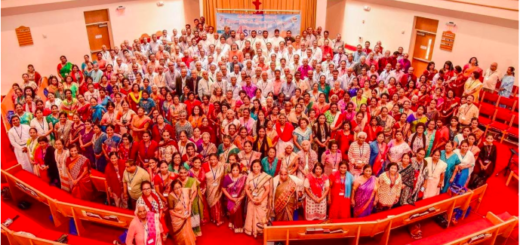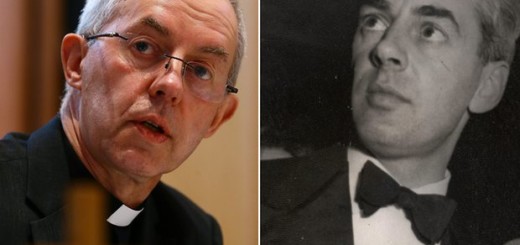PM CARES Fund: An Ambush on the RTI Act? Part II and Concluding Part

https://drive.google.com/file/d/1awFOBZbrJ8PZiYODs2yBNnhQpgG2m9pS/view?usp=sharing
Isaac Gomes
This article is in continuation with my last write-up dated 30th September on PM CARES Fund. Readers will notice that in several instances the government has been adopting a policy of secrecy and non-disclosure and thus, creating unnecessary doubts in the minds of Indian citizens and the intelligentsia abroad. It appears the government of the day revels in creating a smokescreen and resultant controversies.
- PM CARES Fund Trust was established on 27th March 2020 (Link above) as a Public Charitable Trust, to provide assistance and relief in emergency or distress situations, similar to those posed by the COVID-19 pandemic. The Deed (Registration Number 163 in Book 4 Volume No. 1685 07:11:12 PM) was signed in Hindi as Narendra Modi by the Prime Minister with his photo. There were two witnesses namely Mr Bhaskar Khulbe and Mr Rajeev Topno ((1996 batch IAS from Gujarat cadre). Incidentally Rajeev Topno is an alumnus of St Thomas Boys’ School Khiderpore Kolkata and St Xavier’s College Kolkata. Currently he is Senior Adviser to the Executive Director of the World Bank in Washington DC. (Source: The Hindu 04 June 2020).
- A very notable feature of this Fund is that Modiji as the Settlor (a party/individual who establishes a Trust by placing a particular asset) and as Prime Minister put down the initial capital of Rs 2.25 Lakh – Clause 2 of Trust Deed). Thereafter, within the first five days of its launch, a whopping amount of Rs 3,076.62 crore was collected, through contributions received from individuals, corporate and public sector units. They got 100% exemptions under the Income-tax Act 1961 and Corporate Social Responsibility (CSR) expenditure benefits as provided under the Companies Act, 2013. The result was state governments and local NGOs were deprived of CSR funds from these corporates and PSUs. This stunted state-level development projects, as CSR Funds from April 2020 onwards were also diverted to PM CARES Fund for IT incentives. The website does not give any disclosure for collections and utilisation/disbursement (as per stated Objectives) from April 2020 onwards.
- As the Prime Minister’s Office (PMO) repeatedly refused to entertain any queries under the Right to Information (RTI) Act, on the nature of the fund and its usage/applications, stating that the fund was not a Public Authority under Section 2(h) of the RTI Act, a Public Interest Litigation (PLI) was filed before the Delhi High Court to bring the fund under the ambit of the RTI Act.
- During the hearing on 23 September 2021, Under Secretary Pradeep Kumar Srivastava from Prime Minister’s Office submitted an affidavit on behalf of the Central Government that the PM CARES Fund is “not a fund of Government of India and the amount does not go in the Consolidated Fund of India”. He said it is a charitable trust not created by or under the Constitution of India or by any law made by the Parliament or by any State legislature; and that it does not come under the Right to Information (RTI) Act.
- On Monday 27th September 2021, the Delhi High Court, adjourned its hearing till October 6.
-
During the hearing on October 6 (source: The Indian Express – 7th October 2021), Senior Advocate Shyam Divan, representing the petitioner Samyak Gangwal, argued before the court: “You cannot say: look, let’s decide that the Constitution does not apply to us, that we are not State and that we fall somewhere else.”
-
He further said: “There is deep and pervasive state control. It’s working in parallel with government machinery. The manner in which it’s being operated, the financial support and everything about… What’s it in the PM CARES which is private? Can anyone say that it is not State. Apart from that self-certification, we are not able to find any factor that it’s not the State”.

So the debate is whether the PM CARES Fund is a public authority or not. To understand this, it is important to understand “public authority” as provided under Section 2(h) of the RTI Act. It states that:
“(h) “public authority” means any authority or body or institution of self-government established or constituted –
(a) by or under the Constitution;
(b) by any other law made by Parliament;
(c) by any other law made by State Legislature;
(d) by notification issued or order made by the appropriate Government, and includes any –
- body owned, controlled or substantially financed;
- non-Government Organisation substantially financed, directly or indirectly by funds provided by the appropriate Government;
While it can be argued that PM CARES Fund in not a Public Authority under clauses (a), (b) or (c), the decisive point during the Delhi High Court hearing will be whether the Fund comes under sub-clauses (i) of Section 2(h)(d) i.e. “body owned, controlled or substantially financed” by the appropriate government.
The three conditions under this clause are:
(1) ownership
(2) control and
(3) substantial finance.
Even if one of the three conditions is proven by the Petitioners to the justices of Delhi High Court, PM CARES Fund will be considered a public authority, as per the Delhi High Court verdict in National Stock Exchange of India Limited versus Central Information Commission and Others (“NSE Case”).
To arrive at whether or not PM CARES Fund is a public authority, an in-depth study of the Trust Deed dated 27th March 2020, will be the yardstick to determine its true nature. Though the Deed states the Fund is a public charitable trust, that will not automatically exempt it from the ambit of the RTI Act. The Bombay High Court has already clarified that a public charitable trust will be considered a public authority under the RTI Act if it satisfies the condition of sub-clauses (i) of Section 2(h)(d) i.e. if it is owned or controlled or substantially financed by the government.
The above three conditions being non-cumulative, let’s analyse from some salient points of the Trust Deed, only the ‘control’ aspect, without going into the ‘ownership’ and ‘substantially financed’ aspect of the Trust:
Clause 5.3 of the Trust Deed states: “There is no control of either the central government or any state governments, either direct or indirect, in the functioning of the trust in any manner whatsoever.” It is a settled rule that the intention of the settlor (the entity which established the trust) must be gathered by reading the trust deed as a whole and no one clause should be construed in isolation. Therefore, this clause cannot be considered conclusive on the issue of control as various other clauses in the Trust Deed convey a different meaning.
According to Clause 8 of the Trust Deed, the Board of Trustees (“Board”), has complete control over management and administration of the trust.
Further, the Prime Minister as Chairperson, has the absolute power to nominate three other trustees from among the eminent persons in various fields like law, health, science, etc. (Clause 6.4).
The Board has the power to “appoint such office bearers as they may deem fit and such appointees will be directly responsible and answerable to the Trustees who shall have the power to remove or replace them” (Clause 11).
So the Deed itself establishes that the union government, headed by the PM as Chairperson, has absolute control over the collection and administration of the Fund.
In the landmark case of Pradeep Kumar Biswas Versus Indian Institute of Chemical Biology, the Supreme Court held that if the government has a dominant role to play in terms of power to appoint a secretary and nominate/terminate members of the governing board, then it is said to have control over the body. In PM CARES Fund, the Prime Minister, Union Ministers of Home, Defence and Finance (Clause 6) are the key Trustees. They are the ones who run the Indian Government and the entire management & administration of the fund are in their grip. The two are Siamese Twins.
The fund is headed by a constitutional authority, the Prime Minister, who as per Clause 6.7 of the Deed, has the sole power to (i) add a person as a Trustee (ii) remove a trustee (iii) replace any existing Trustee with another person as Trustee. The PMO provides to the trustees, administrative and secretarial support which is required for the management and administration of the trust (Clause 6.8 of the deed). Joint Secretary (Administration) in the PMO acts as a secretary to the Fund and looks after its administration.
The decisions taken by the authorities regarding the operation of the PM CARES Fund cannot be said to have been made in a personal capacity. It must be considered to be official decisions taken by a public authority because the fund is not being used for personal purposes but for the furtherance of public purposes, as is clear from the following objectives of the Trust (Clause 4.2):
- “To undertake and support relief or assistance of any kind relating to a public health emergency or any other kind of emergency, calamity or distress, either man-made or natural, including the creation or upgradation of healthcare or pharmaceutical facilities, other necessary infrastructure, funding relevant research or any other type of support.
- To render financial assistance, provide grants of payments of money or take such other steps as may be deemed necessary by the Board of Trustees to assist the affected population.
- To undertake any other activity, which is not inconsistent with the above Objects.”
Further:
- The fund is housed in the PMO, which is not a separate establishment from the Central Government.
- There is no separate administrative expenditure on the Fund's management as it is managed by the PMO officers on honorary basis.
- The Fund uses the state emblem of the Sarnath Lion Capital of Ashoka as its logo.
- Moreover, the fund uses the official domain `gov.in’ which is reserved only for a few government departments and agencies.
In the light of the above scenario, it is very clear that the government has ‘substantial’ control over PM CARES Fund.
Therefore, it meets the requirement of section 2(h)(d)(i) as laid down by the Supreme Court in Thalappalam Service Cooperative Bank Ltd Versus State of Kerala, 2013.
Hence PM CARES Fund should be considered a public authority under the RTI Act.
One interesting point in Clause 8.1(w) of the Trust Deed: “In circumstances where deemed necessary, the Trust may permit any other public charitable trust or institution having similar objectives to amalgamate or transfer, all or part of their assets to this Trust.” (Read: gobble up)!
PM CARES Fund is a matter of public credibility: Trust, Transparency and Accountability – especially from the standpoint of domestic and overseas donors. How can the Trust refuse to disclose information regarding its functioning? Will the Prime Minister disband the Trust and liquidate the Fund if he is out of power?
Source of basic information: The Wire 25 February 2021.

















